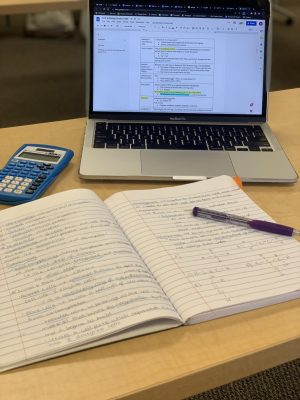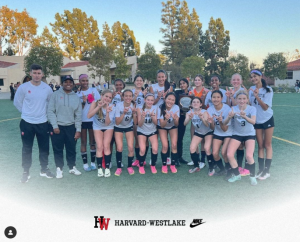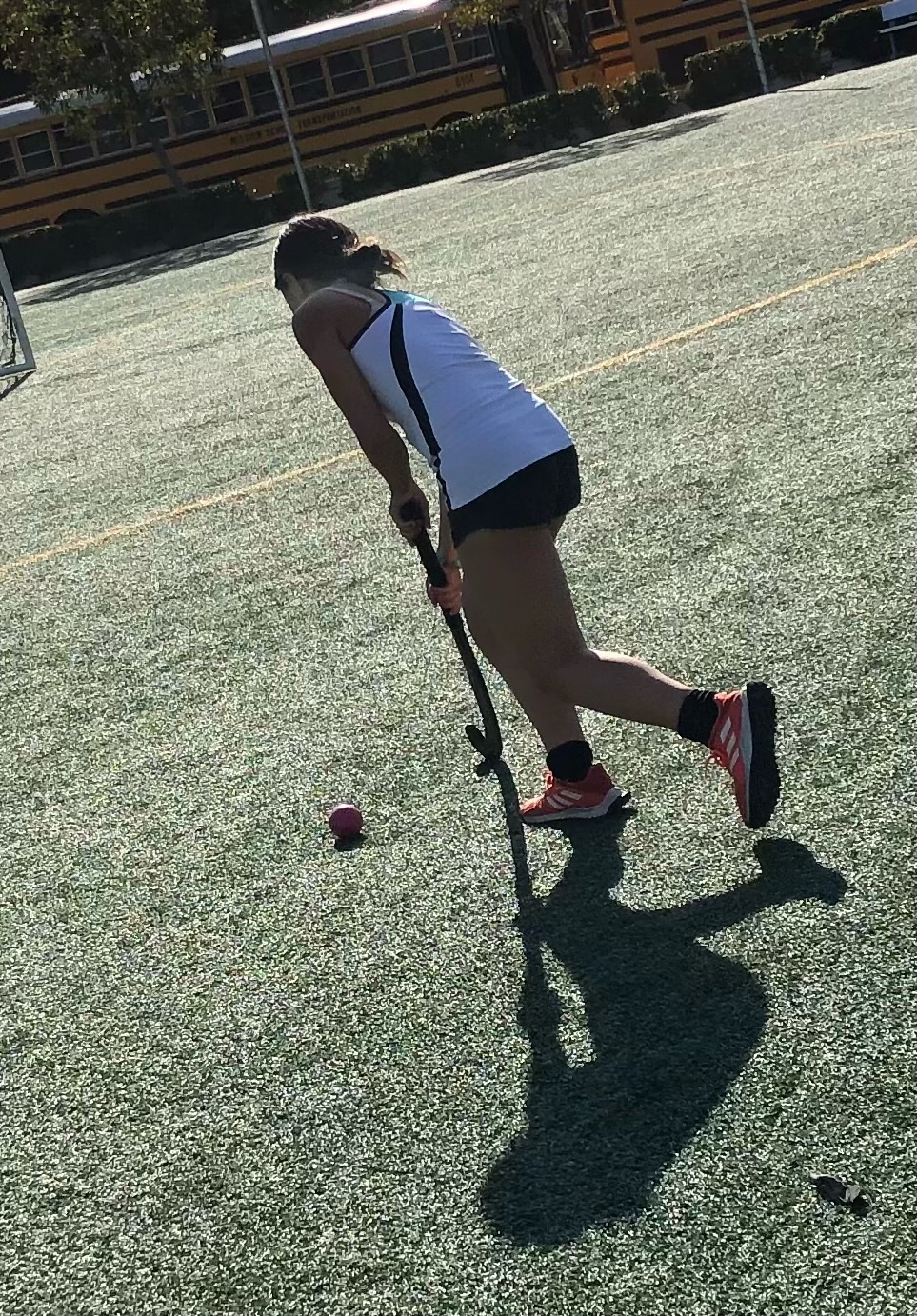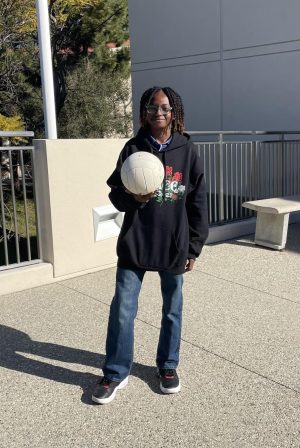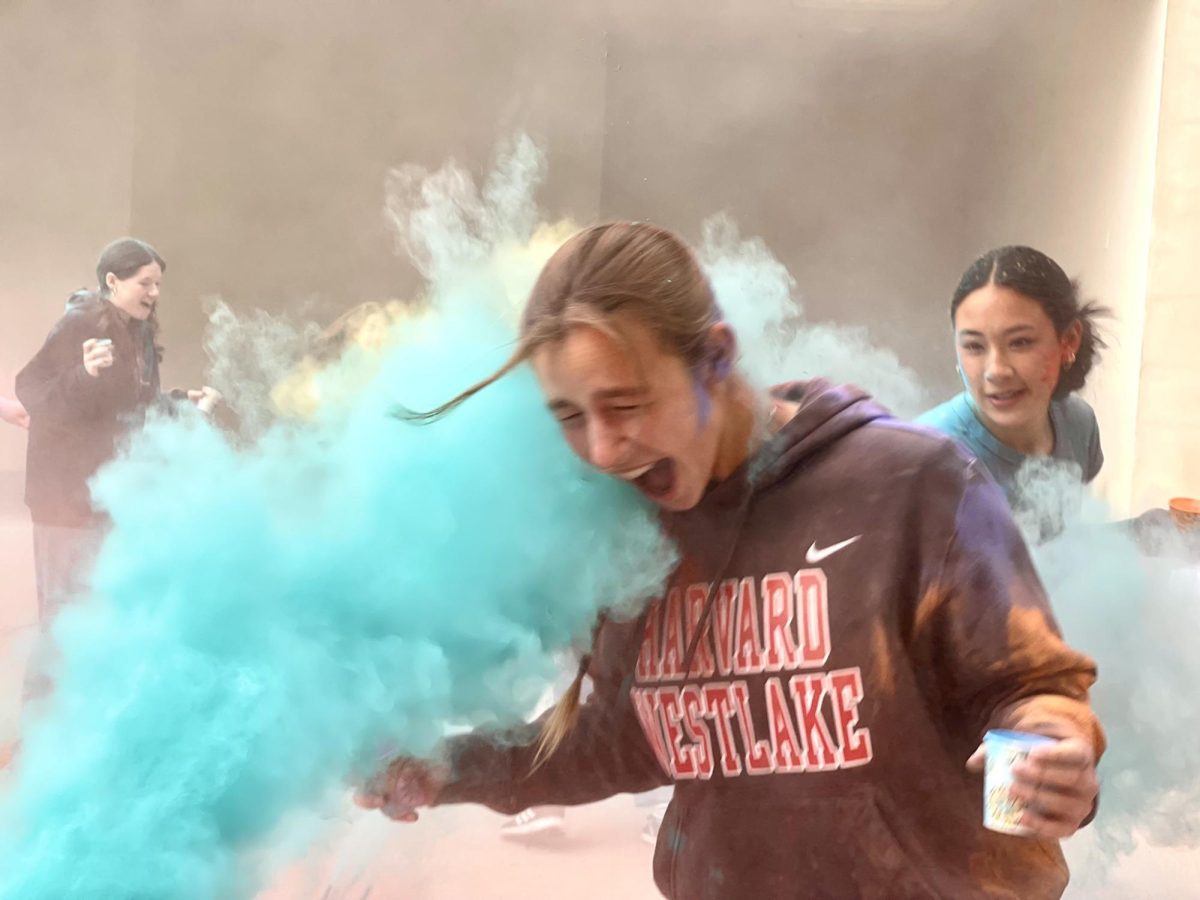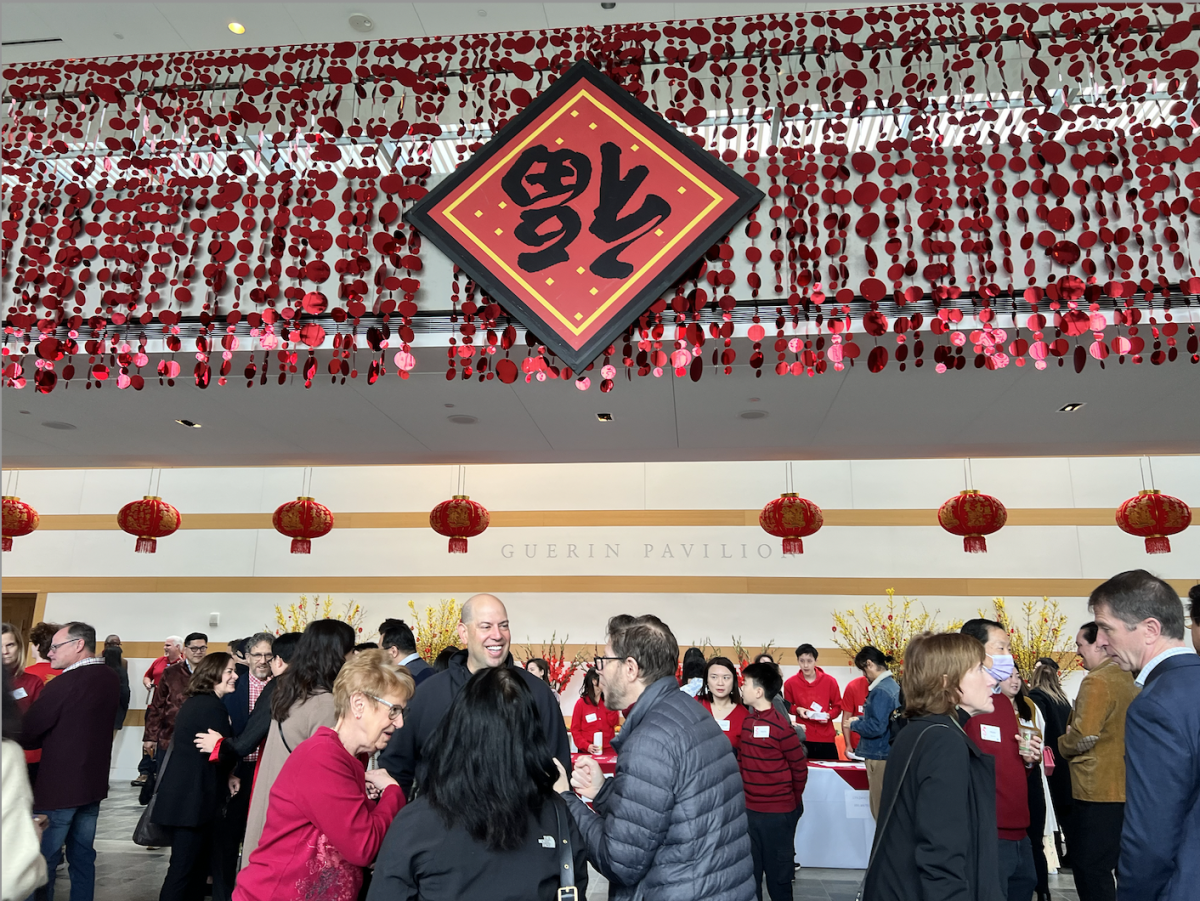Fifty Harvard-Westlake (HW) computer science students competed in the 36 hour Hackathon in the Upper School’s Mudd Library over President’s Day weekend. From the morning of Feb. 16 to the evening of Feb. 17, students divided into 12 different teams and began to hack together to realize an idea using code.
The Hackathon is an annual event for HW students in grades ninth through 12th that was created in 2016. Participants form teams and work on a computer programming project of their choice throughout the event. Groups present proposals to a panel of judges at the end of the competition. Rehaan Furniturewala ’19 and Sarah Wilen ‘19 organized the Hackathon this year.
The experience of the students who participated in computer programming was extremely diverse. Some were just completing Intro to Programming One, while others had taken AP Computer Science courses at HW.
Teams could develop any concept they desired, so the finished products were varied. Participating groups focused on improving HW students’ daily lives by working on proposals that targeted their needs. A team created a website that prevents students from procrastinating on assignments. Another group developed an iMessage extension that automatically arranged meetings between friends.
Some teams focused on developing entertainment technology that would enhance players’ experiences. One group spent their time developing a fantasy virtual reality (VR) game. In the game, the player is a wizard that can shoot fireballs and use other magical abilities. The highlight of the game is its innovative hand-detection technology.
“We’re making a VR game that’s really immersive because it can detect your hand location in space and your hand shape, and it would respond in the game,” Will Liu, one of the group members, said.
Throughout the event, students used several programming languages and methods such as Python and HTML that are not taught in computer science classes at HW. To help hackers grasp the new concepts, mentors held workshops about unfamiliar coding languages and were available for student questions. The mentors were HW alumni who are professionals in the software engineering industry.
Samy Kamkar, a well-known hacker, arrived at the event to help students with their projects. As a gray-hat hacker, Kamkar points out flaws in the cybersecurity systems of large corporations. He is notorious in the technology community for hacking MySpace in 2005. Even with the mentors’ help, however, participants had to learn most of the new concepts on their own. Though challenging, independent learning is one of the goals of the Hackathon.
“What a Hackathon really is about is exploring new technologies and trying out new things,” Furniturewala, one of the organizers, said. He recounted his own experiences at past Hackathons and how impactful they were. Furniturewala created HW Check In, a system for HW students to check in and out of school, after learning concepts at the event.
Teaching students how to learn independently is also preparation for a potential future in the computer science industry according to Adam Zucker ‘13, a mentor who works as a software engineer for Facebook.
“I think a lot of the skills that have helped me succeed in software engineering were things that I kind of picked up on my own,” Zucker said.
Students presented their finished projects in front of a panel of judges consisting of HW alumni in the computer science and business industries. The groups received feedback and ideas to further develop their ideas.
The judges evaluated the proposals on criteria like execution, presentation, and utility before choosing winners. “We looked at projects that were solving real problems for people,” said Todd Jackson ‘99, one of the judges. Programs were nominated for various categories including: Best Presentation and Best Gamification. Three overall winners also received prizes of AirPods, Fitbits and other gadgets.
Byte Lab and SchedHW were successful projects that received second and third place, respectively. FreeHand VR, the group that utilized hand-tracking technology in a VR game, received the first place prize. Judges chose these projects for their ambition and successful implementation according to Jackson.
The importance of computer science makes events like the Hackathon popular. Zucker recounted how there weren’t enough students taking programming courses to host an event like a Hackathon when he attended Harvard-Westlake.
“I was amazed that there was even a Hackathon here,” Zucker said.
Jessica Kaufman, middle school programming teacher, also sees higher levels of interest in computer science. “There’s more students who take programming and computer science than ever before,” she said.
The HW Hackathon is not just an event designed for aspiring computer science students but students with other interests as well. Organizers are working to expand it to students of various interests. “There’s so many types of people here: there’s programmers, entrepreneurs, designers. I want them to learn something from each other,” Wilen, the other event organizer, said.
